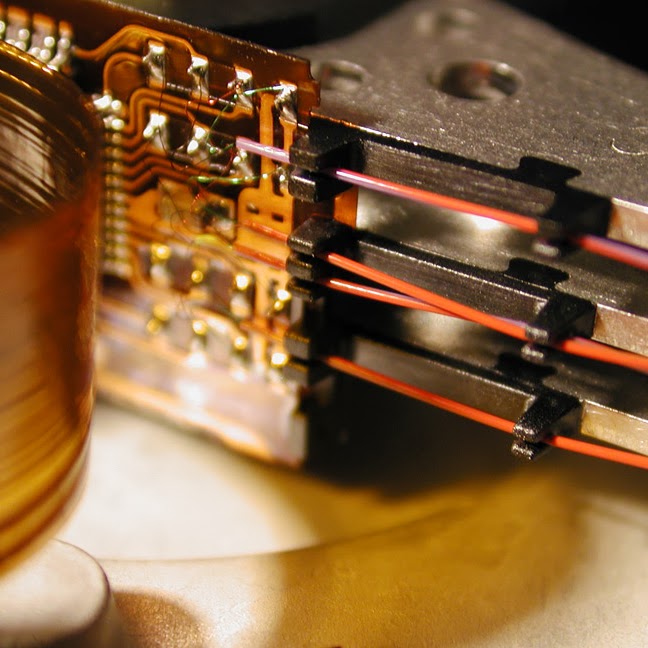When you’re on the hunt for a new USB power adaptor, you may come across a few options with gallium nitride (GaN) technology. These charging bricks tend to be a bit expensive. But due to their reduced size and increased charging ability, a GaN charger may be your ideal purchase. It could even help you save money in the long run.
Most USB chargers use silicon semiconductors. Gallium nitride (GaN) is simply a power-efficient alternative to silicon. It allows a charger to achieve small size without a reduction in charging speed or thermal performance. A GaN charger is ideal for travelling or powering several high-wattage devices, such as laptops.
With more and more laptops charging through USB-C, and more phones making use of ultra-fast charging, you’ll start to notice that the silicon based chargers can get really hot during charging these devices.
Instead of buying a large silicon-based charger that only has two ports (with a shared throughput), you can buy a GaN charger with four, five, or even six high-speed charging ports.
#technology #chargers #GaN
This technology is cool. My only problem with it is that it’s going to incentivize even more power-hungry devices.
I came across this post by the framework company a few days ago. They were boasting about their new 240W adapter. My question was: do we really want 240W laptops? Shouldn’t we make them smaller and more efficient instead?
IMO It’s relative
My current laptop (edit: used for for studio apps, 3D modeling and rendering, and AI stuff) draws 240W but I’d say it’s an improvement over the 500W+ I would be drawing from a desktop that would have been in it’s place. The performance isn’t that competitive with desktop parts but the Perf/Watt definitely better.
Most people are just going to be using their phones and tablets to browse the web and watch videos anyway, with the odd Ultrabook here and there which are still pretty good in a Perf/Watt sense.
Jevons paradox does come to mind though.
My thought is faster charging is a better reason for high wattage adapters. If your adapter can put out 240w and your laptop requires 70w to run then your battery would charge at 170w.
I’d be interested to see how charging wattage and overall battery efficiency correlate. I’d expect there to be deminishing returns at some point, either in battery life or simply utilizing the input power less ideally. I can definitely get behind your point about faster charging being a solid use case, but I wonder what the upper limit for that is.
Some people use laptops for doing mobile work, and in some cases that work requires computing power and possibly external peripherals which might require power from the computer. And, of course, games are power hungry.
Higher wattage chargers can also charge the battery faster. Lithium batteries, regardless of their size, can be charged to full in one hour (but it’s recommended for full charge to take about 1.5 to 2 hours to not wear down the battery). The bigger the battery the more wattage you need to charge it that fast. Especially if you are using the computer at the same time.
Well, certainly on phones those ultra-high charging rates are not doing the batteries much good - I keep mine on slow charge. But laptops do max out the USB-C on many chargers (if you have the right cables) and I’ve felt my USB-C charger get pretty hot.
How many ports are on that charger? I have a group that plays D&D using a VTT even when playing in person. A 240 watt charger could power 3 or 4 laptops, greatly reducing cable clutter.
There’s a difference between consuming power to do stuff, and consuming power to charge. More power to charge = faster charging.
That’s why Apple’s push towards ARM is a great step forward
They ship their MBP 16" with 140w power supplies, way higher than framework standard 60w charger. But I would guess it’s to be able to push full power and still charge the battery as fast as possible
Honestly, its pretty awesome to be able to charge stuff so fast, not to mention the M1 power consumption is tiny in the first place
The biggest difference for me was the noise. Intel mbp fans spinning as soon as you open more than one application, going turbo if you compile anything and slowing down in the summer because of the heat.
The only time I heard my M1 Mac fans is when I left the poor thing in direct sunlight outside
yeah kinda makes you wonder why even bother with the pros, just get the airs
I would Guess the air cannot sustain the performance as well as the pro. The battery is way bigger afaik Doing 16+h on a single battery charge is insane
Funny thing is that all the video reviewers review what they know, specifically “editing and rendering video content for their channel”.
The majority of users won’t even come close to the power usage that those guys require, demand and talk about.
Personally I do a lot of dev work but have never really run into thermal or performance problems on my MBP, and I suspect I’ll be fine on MBA as well.
I wonder what would be the difference in environmental footprint between the two types of chargers. According to this article it seems okay-ish compared to classical chargers, but more sources would be needed for me to form an opinion on the matter.
Anyhow, these new chargers look neat
Well one’s giving off lots of heat is wasted energy, so the GaN are likely more efficient.
I have a 45W one since i dont have any USB-C devices that have fast charging. The only device that i own that can use its whole capacity is a chromebook. However it charges super slow when plugged in and powered on. I figure the computer is pulling most or all the power for operation






